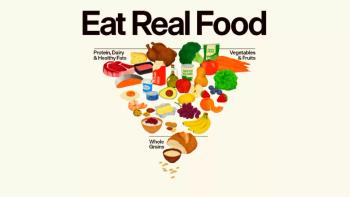
The relationship of parental eating behaviors and their children and adolescents’ weight
Encourage parents to model healthful eating behaviors and positive relationships with good eating habits.
Parental eating behaviors, both their personal habits and the way parents choose to feed their infants, children, and influence the eating habits of their older school-age children and adolescents leads to either healthy infant, childhood, and adolescent eating behaviors or a life-long struggle with eating and weight management. The Centers for Disease Control and Prevention identifies obesity as a serious problem in the United States with a prevalence of 18.5% of children and adolescents, aged 2 to 19 years, meeting the body mass index (BMI) criteria for obesity.1
A major component of pediatric practice is guiding parents’ understanding of best feeding practices for infants, children, and adolescents. Obtaining relevant history related to eating practices and providing guidance on the weight and BMI status of the child and adolescent are significant aspects of every well pediatric health care visit. For years, much of pediatric nurse practitioners’ (PNPs) and other practitioners’ guidance for feeding infants was ‘passed down from training’ rather than based on scientific studies that investigated best nutritional practices. In the article entitled,
Parental weight and the influence on child/adolescent weight
The study, reported by Ms. Zimlich, does not report on the nutritional status of the parents who participated in the study. Previous studies have shown that the children of parents who are overweight or obese have a higher prevalence of obesity than children of parents whose BMI is within the normal range for their age and height. A child with one obese parent has a 50% change of being obese and when both parents are obese, their children have an 80% change of obesity.2 These data support the nutritional study reported by Ms. Zimlich that parental eating practices are a direct influence on their children’s eating behaviors. Parental obesity is a complex problem that is out of the scope of practice of pediatric providers, even though there is a direct correlation between child and parental obesity. As noted by Dr. Thomson, a lead author on the report, obesity is an ‘uncomfortable conversation’ with parents. As PNPs we understand the sensitivity of a discussion on healthy eating and role modeling healthy nutritional habits when 1 or both parents are obese. These discussions have the potential to hinder the trusting relationships we work hard to build with parents. Often, we circle the problem by referring the parents to websites that support healthy eating practices, such as Choose My Plate.3 We also refer the parents to a nutritionist for counseling for better eating practices for their children.
Role of pediatric providers
Pediatric providers who support exclusive breastfeeding for the first 6 months of life set the groundwork for healthy eating. Likewise, providers who strive to engage parents in developing healthy eating behaviors when introducing foods to infants aged 6 months and to continue healthy behaviors throughout toddlerhood, review growth charts with parents during routine office visits, and provide evidence-based feeding practices for infants and toddlers may be more successful in achieving healthy weight gains. However, studies need to be designed and conducted to analyze the outcomes of these strategies. Additionally, studies on methods to influence changing parental behaviors and ways to communicate with parents that their poor eating practices negatively influence the overall health of their children and adolescents are also needed.
References
1. Center for Disease Control and Prevention. Childhood Obesity Facts | Overweight & Obesity | CDC. Cdc.gov. Update June 24, 2019. Accessed November 17, 2020.
2. UCSF Benioff Children's Hospital . Obesity | Conditions & Treatments. Ucsfbenioffchildrens.org. Published 2020. Accessed November 17, 2020.
3. United States of Agriculture. MyPlate | ChooseMyPlate. Choosemyplate.gov. Published 2020. Accessed November 17, 2020.
Newsletter
Access practical, evidence-based guidance to support better care for our youngest patients. Join our email list for the latest clinical updates.






